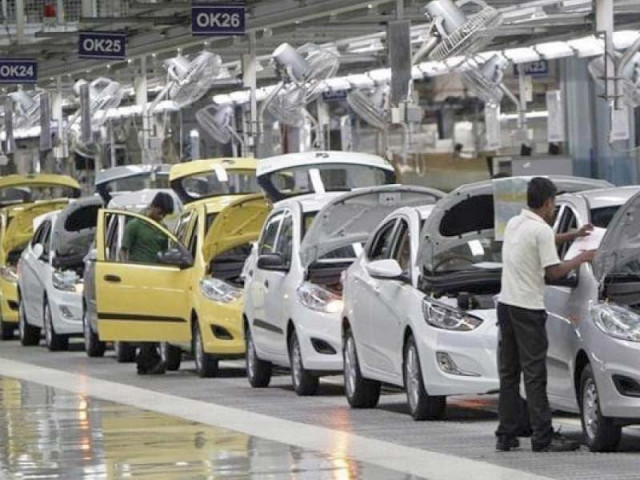Tax changes threaten auto industry
PAMA DG warns proposed changes could have severe consequences

The struggling auto industry in Pakistan faces further turmoil as the government contemplates revising withholding taxes and other duties on domestically manufactured vehicles.
Pakistan Automobile Manufacturers Association (PAMA), Director General, Abdul Waheed Khan expressed deep concern about the potential changes in the taxation basis for locally produced automobiles in a letter to the Secretary of Industries. Khan warned that implementing these changes in the 2023-24 fiscal year budget could have severe consequences for an industry already grappling with significant challenges.
The auto sector is currently plagued by economic fluctuations, rising production costs, and fierce competition from imported vehicles. Khan’s letter highlighted the industry’s distress, stressing that additional burdens resulting from the proposed taxation alterations would only worsen the existing woes. He urged the government to reconsider the potential repercussions and find sustainable solutions.
If the proposed changes are enacted, local automobile manufacturers and dealers will likely face increased financial pressure, leading to production declines, layoffs, and further industry slowdown. Moreover, it could discourage potential investors and hinder the industry’s ability to attract foreign investment, ultimately impacting its growth and competitiveness.
Currently, withholding tax is based on the engine capacity of an automobile under section 231B of the income tax ordinance, whereby the amount of tax is already to be levied on each filer and non-filer buyer of an automobile. For engine capacities ranging from up to 850CC to 1000CC, filers will be required to pay Rs10,000 in withholding tax, while non-filers will face a higher rate of Rs30,000. Similarly, for engine capacities between 1001CC and 1300CC, filers will need to pay Rs25,000 in withholding tax, whereas non-filers will be subject to a higher rate of Rs75,000. The rates continue to increase with larger engine capacities.
The government is reportedly considering charging withholding tax on the invoice price basis instead of the engine capacity basis. Khan strongly opposed this proposal, as it would substantially increase withholding tax payments, inevitably raising sale prices and adversely affecting sales. He also called for a reduction in the current engine-based withholding tax amount.
Pak Suzuki Motor, the largest manufacturer of passenger cars and light commercial vehicles in Pakistan, highlighted its struggles in a separate statement. Pak Suzuki Motor, Head of Public Relations, Shafiq Ahmed Shaikh revealed that the company suffered massive losses of 12.9 billion in the first quarter of the current year due to economic uncertainties. The company has also been forced to observe numerous “No Production Days” each month throughout the year. The dire economic and business situation has also affected dealers and vendors, with some already closed and others on the verge of closure.
Association of Pakistan Motorcycle Assemblers (APMA), Chairman, Muhammad Sabir Shaikh criticised the withholding tax on sales and called for its removal on motorcycle dealers with an annual turnover above 100 million. Shaikh appealed to the federal government to eliminate this tax in the Budget 2024. A representative from Suzuki echoed the sentiments, requesting the government to refrain from imposing new duties and taxes in the upcoming federal budget, especially on vehicles up to 1000cc, which are affordable for the masses.
Khan further argued against changing the long-standing practice of levying withholding tax based on engine capacity to an invoice price basis. He emphasised that such a change would not only negatively impact sales but also undermine the simplicity and convenience of the tax levy. The PAMA DG strongly recommended maintaining or further reducing the existing withholding tax structure under section 231B without changing the rates.
The auto industry experienced a decline in the years 2019-20 and 2020-21 due to the COVID-19 pandemic but began to recover in 2021-22. However, it suffered a massive setback in 2022-23 due to import restrictions, skyrocketing inflation, and other macroeconomic challenges. He expressed concern that any further increase in taxes would severely impact an industry already burdened with over 40% per unit tax. He called for an industry and investment-friendly budget that avoids imposing additional taxes and duties.
Published in The Express Tribune, June 3rd, 2023.
Like Business on Facebook, follow @TribuneBiz on Twitter to stay informed and join in the conversation.


















COMMENTS
Comments are moderated and generally will be posted if they are on-topic and not abusive.
For more information, please see our Comments FAQ